Extreme rainfall has been devastating North Queensland in recent days, and in the past 24 hours we’ve seen that begin to impact the electricity network more significantly – with Ergon Energy reporting that 9,000+ customers are without power and one substation is currently offline due to flooding. So far the worst effects have been felt around Townsville, and in and around the town of Ingham.
In this short article, I’ll be collating known information about the current weather system and how it projects to evolve. Then I’ll briefly summarise any related impacts we’ve seen on electricity demand, generation and the transmission network in Queensland.
Weather Events
The SBS and BoM are reporting that nearly 1,000 mm of rain has fallen over Paluma Dam in Townsville over the past 48 hours, and over 400 mm over Ingham in the last 24 hours. The chart below shows the spread and extent of rainfall experienced and expected in the area today.
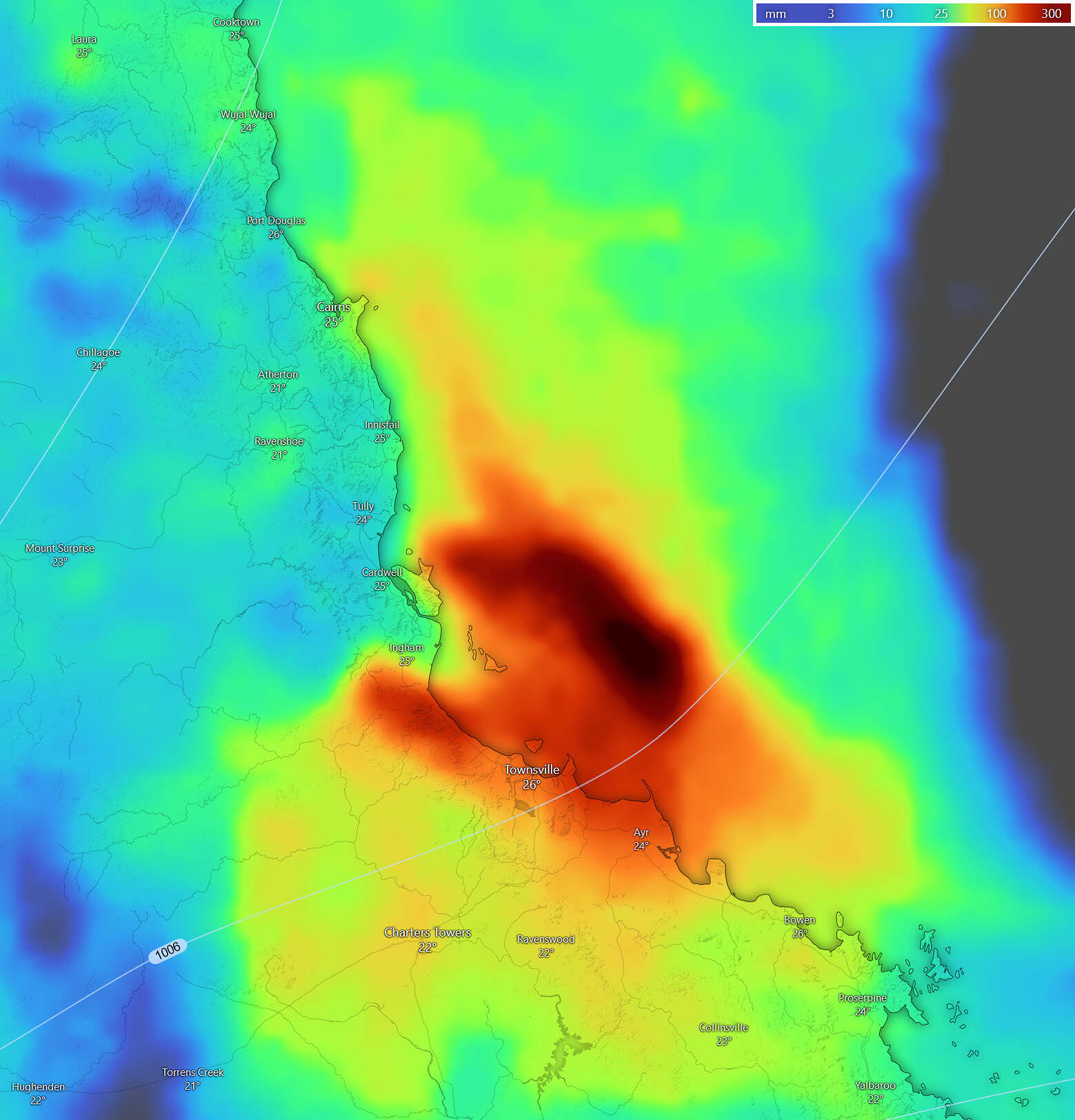
Actual and projected rainfall accumulation over the 24-hour period over February 3rd, as at 11:00 am.
Source: Windy
WeatherWatch are reporting that heavy rainfall in the area will continue for another 36 to 48 hours – with the extreme rain a result of a trough extending east from a low-pressure system over northern Queensland, with the trough acting as a collision zone between humid southeasterly winds and moist northerly winds.
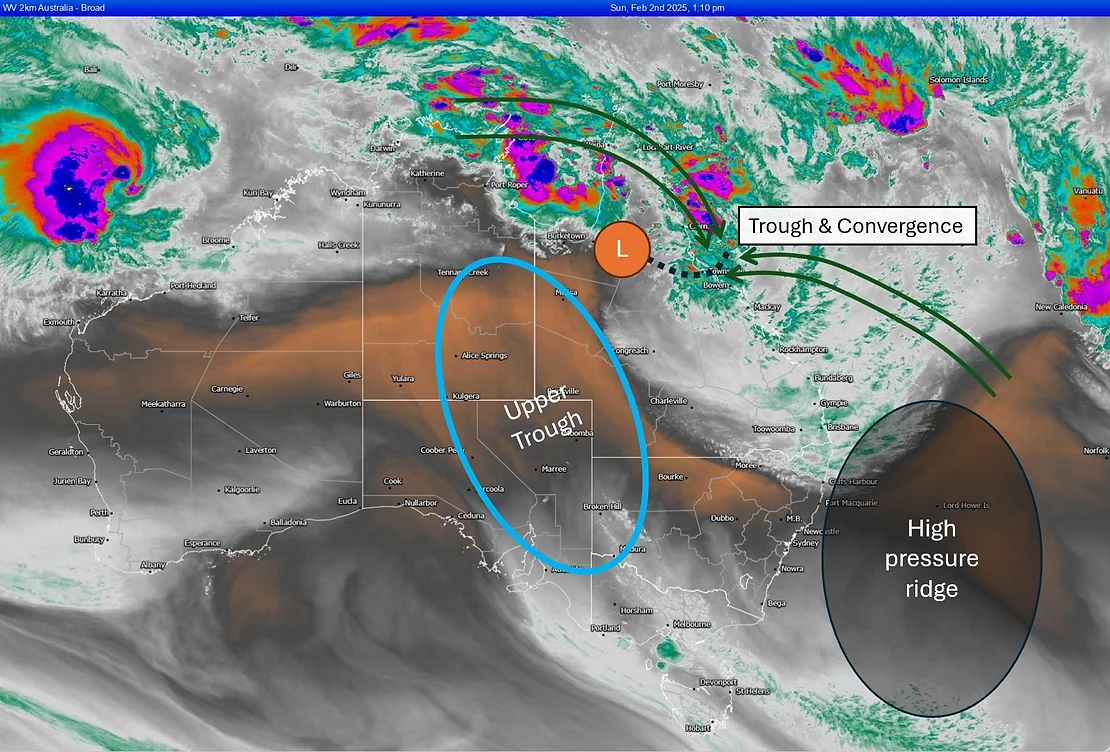
The collision of humid southeasterly winds and moist northerly winds means that heavy rainfall is expected to continue in North Queensland for the next ∼48 hours, and then is expected to gradually weaken.
Source: WeatherWatch
Impacts on Demand
Ergon Energy last night posted on X that more than 9,000 customers in North Queensland are without power, and will remain so until water levels recede – with ∼6,700 of those customers directly affected by the de-energisation of the Ingham Substation yesterday morning. The image below is a screenshot of the current Ergon outage map over the area most impacted.

Outages on Ergon’s network around Ingham and Townsville, as of 9:45am (NEM time) this morning.
Source: Ergon Energy
The charts below have been created from the Powerlink Qdata package – which we offer as an optional add-on within some of the widgets within our ez2view software. We can see reduced demand in the ‘Ross’ zone (which contains the Townsville and Ingham areas) over the past week, starting from the Australia Day long weekend where earlier extreme temperatures (and extreme demand) subsided just before the public holiday – and then a more sudden drop yesterday, coincident with the de-energisation of Ingham substation, and other outages reported above.
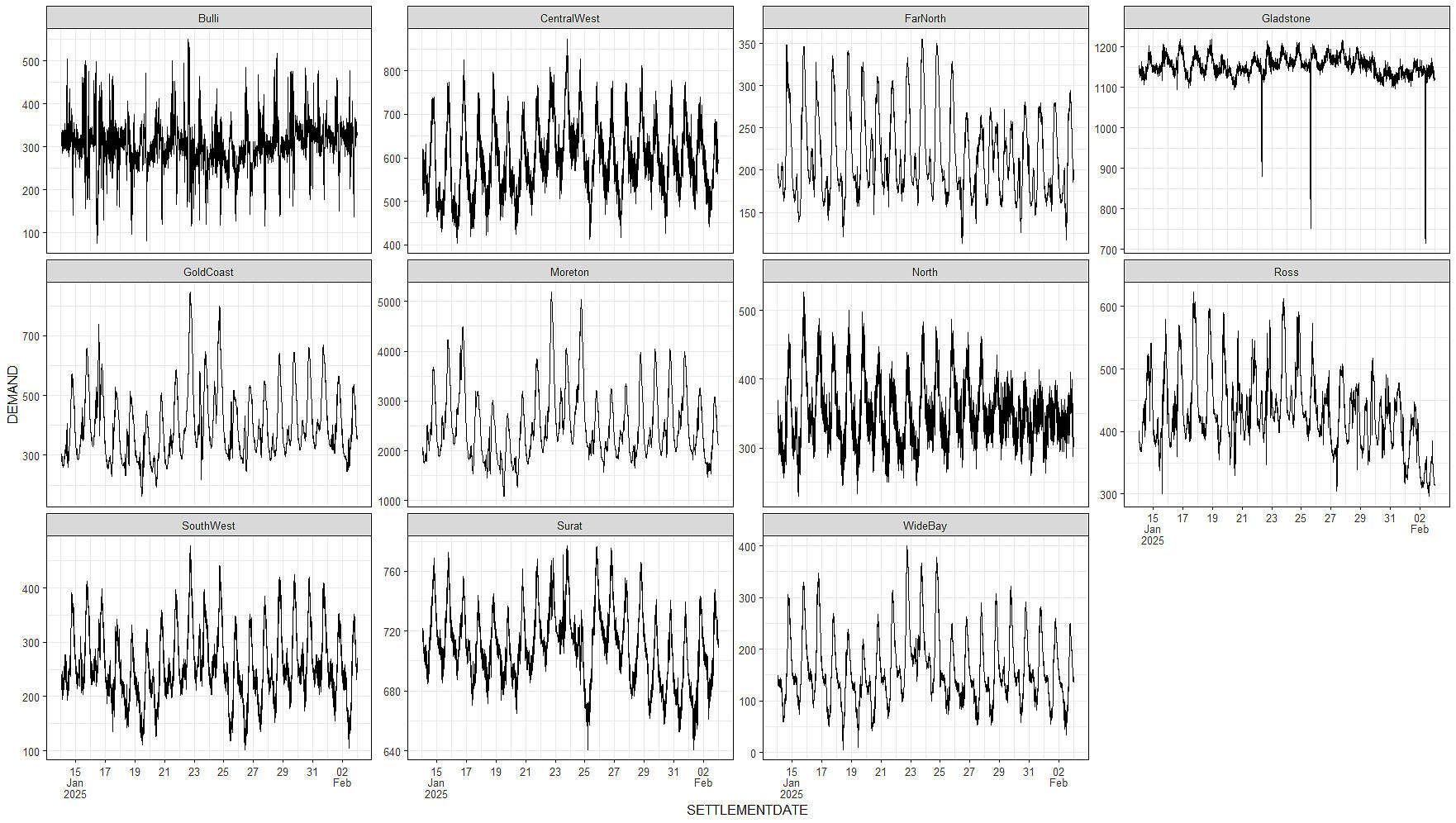
Zonal consumption data throughout Queensland over the past two weeks. Click here for a higher resolution image.
Source: Powerlink Qdata
Impacts on Generation
The screenshot below has been taken from our QLD schematic in ez2view, as at midday (NEM time). In the aforementioned Ross zone we see reduced output at several solar farms in the area – understandably experiencing reduced solar irradiance due to the presence of rain clouds over the area.
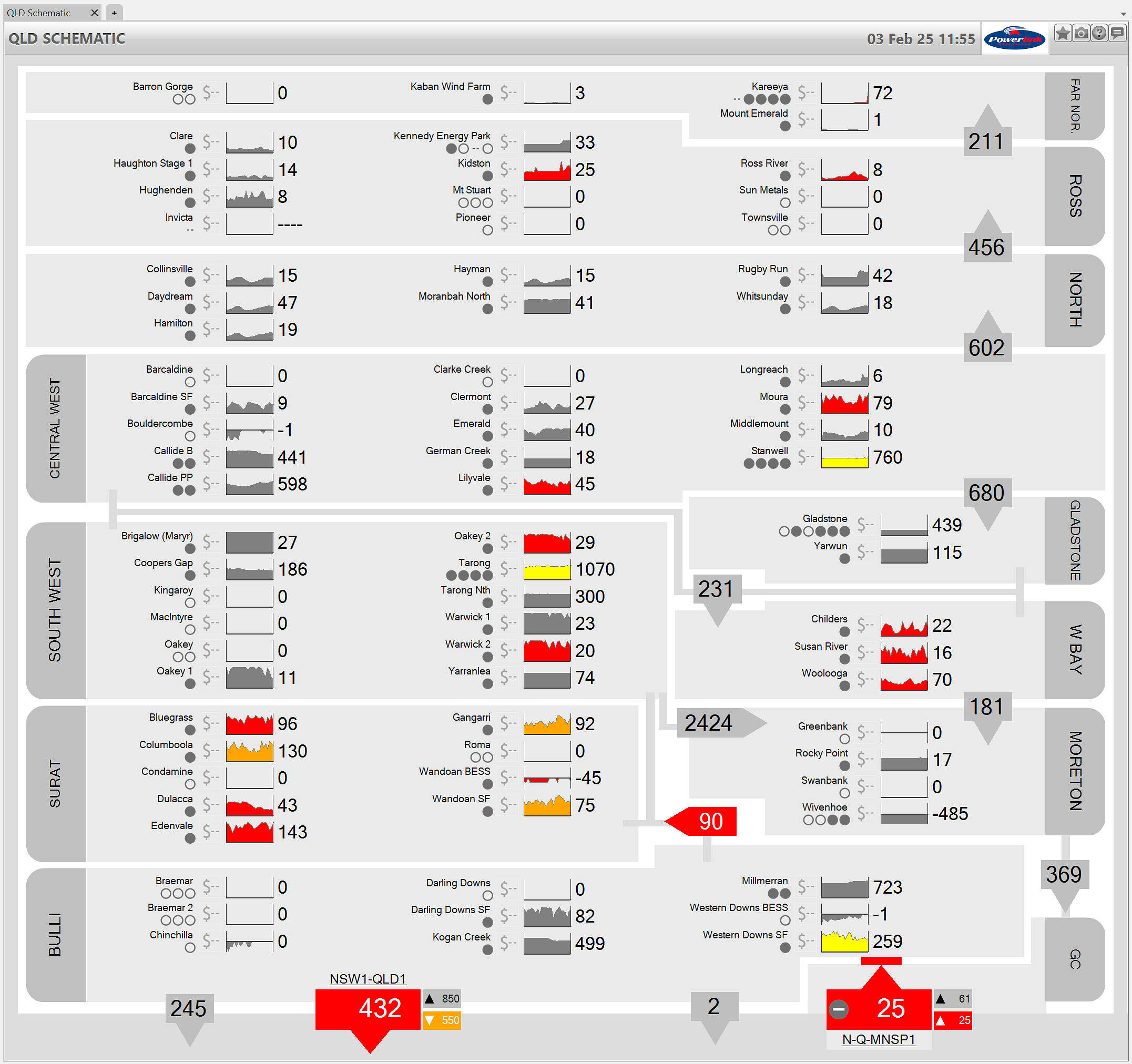
An overview of generators in Queensland, as at 12:00 (NEM time) today. Click here for a higher resolution image.
Source: ez2view’s QLD Schematic widget
We can see in that screenshot that Sun Metals Solar Farm is currently offline. From a closer inspection of our unit dashboard widget for the solar farm – shown in the image below – it appears that the unit has had no megawatts available to the market since the 13:10 dispatch interval on Friday afternoon.
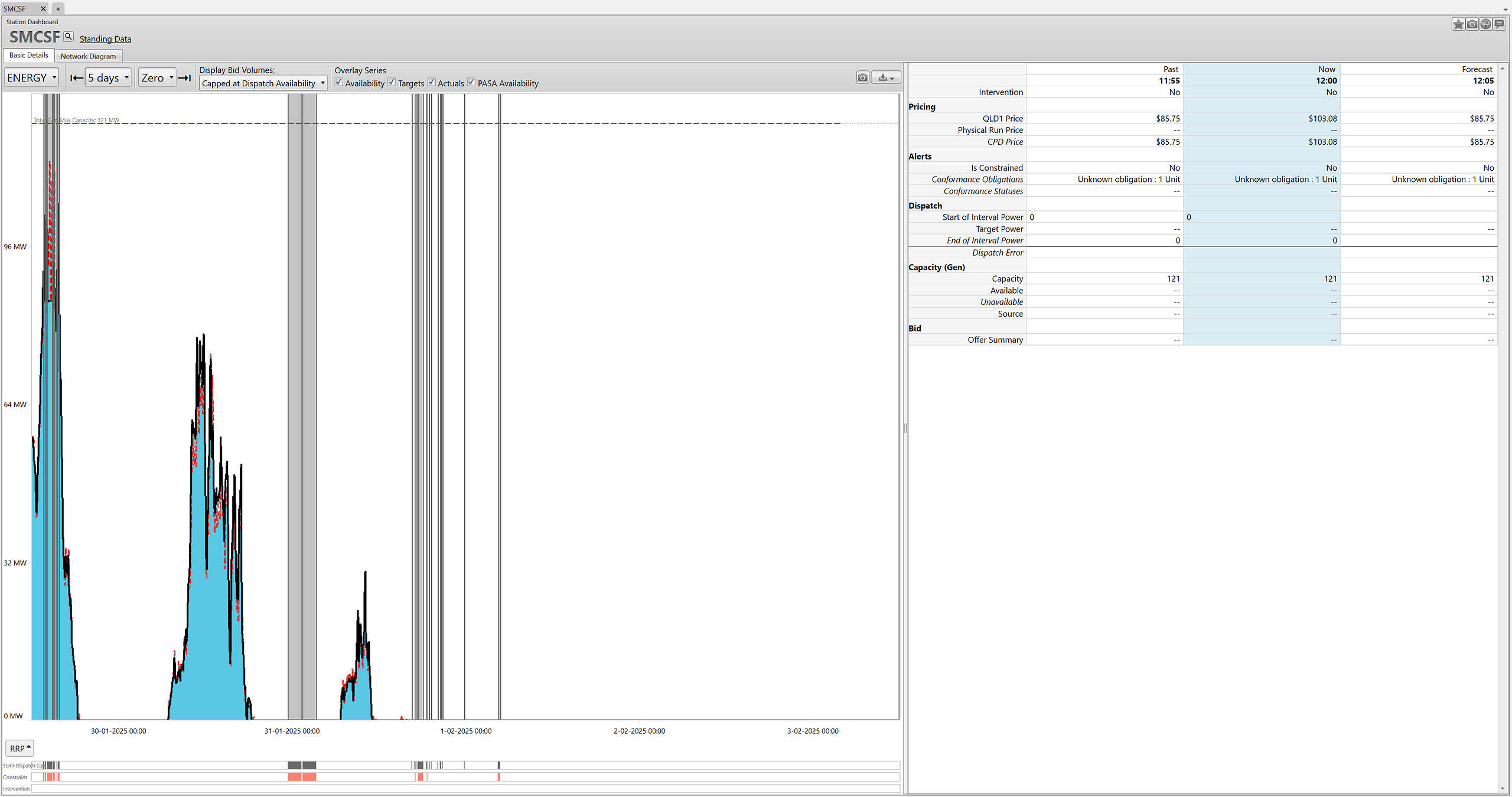
Sun Metals Solar Farm has not been available since early on Friday afternoon.
Source: ez2view’s Unit Dashboard
Elsewhere, it’s worth noting that Wilmar Sugar’s Victoria Mill, a 24 MW Biomass (Baggase) cogeneration facility located just 6km east of the town of Ingham, is a registered generator in the market and is in one of the most impacted areas of the floodwaters. However, it has not regularly published any SCADA data in a number of years (and as a Non-Scheduled unit has no obligation to), hence is not shown in our QLD schematic.
We should also keep in mind that the 66 MW Barron Gorge Hydro Power Station, located approximately 300 km north of Townsville, is in an area that has not yet been impacted by the same level of extreme rainfall as what’s been seen further south. The power station was significantly damaged by floodwaters during Cyclone Jasper in December 2023. It returned to service last July, and had its weir embankment completely rebuilt, with those works being completed just one and a half months ago. The station has been offline since September 1st with an extended outage, likely related to Phase C of the remaining repair works.
Impacts on the Network
As mentioned, the Ingham substation is currently de-energised due to flooding with the extent of this shown in the picture below. The earlier referenced WeatherWatch article states that water in Ingham is likely to reach the town’s record flood height of 15.2m, set nearly 58 years ago.
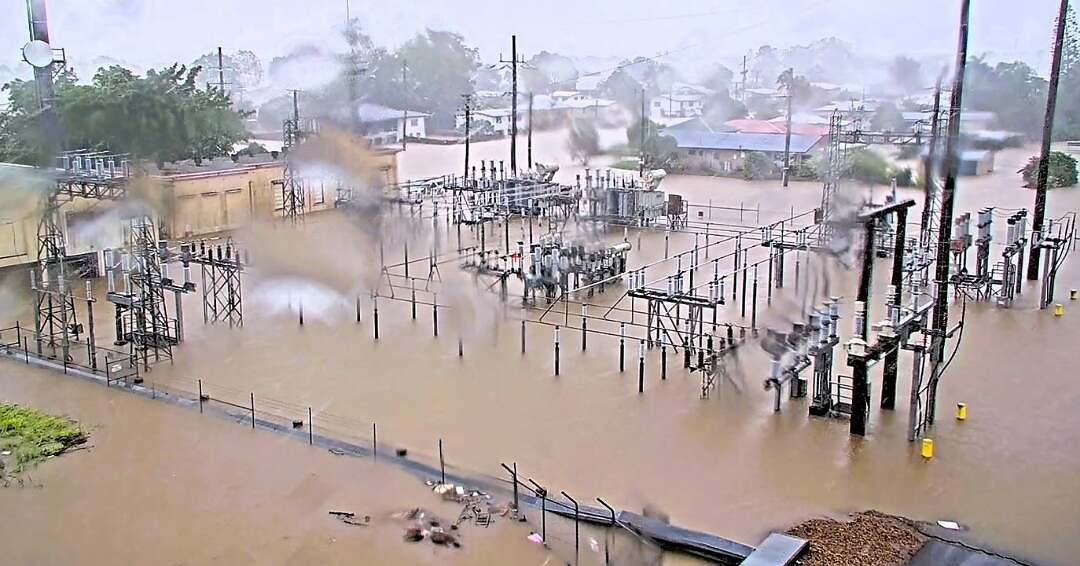
The Ingham substation was de-energised due to rising flood waters, cutting power to ∼6,700 customers.
Source: Ergon Energy
The substation is part of North Queensland’s 132kV coastal transmission path, and runs almost parallel to a higher capacity 275kV line inland to its west.
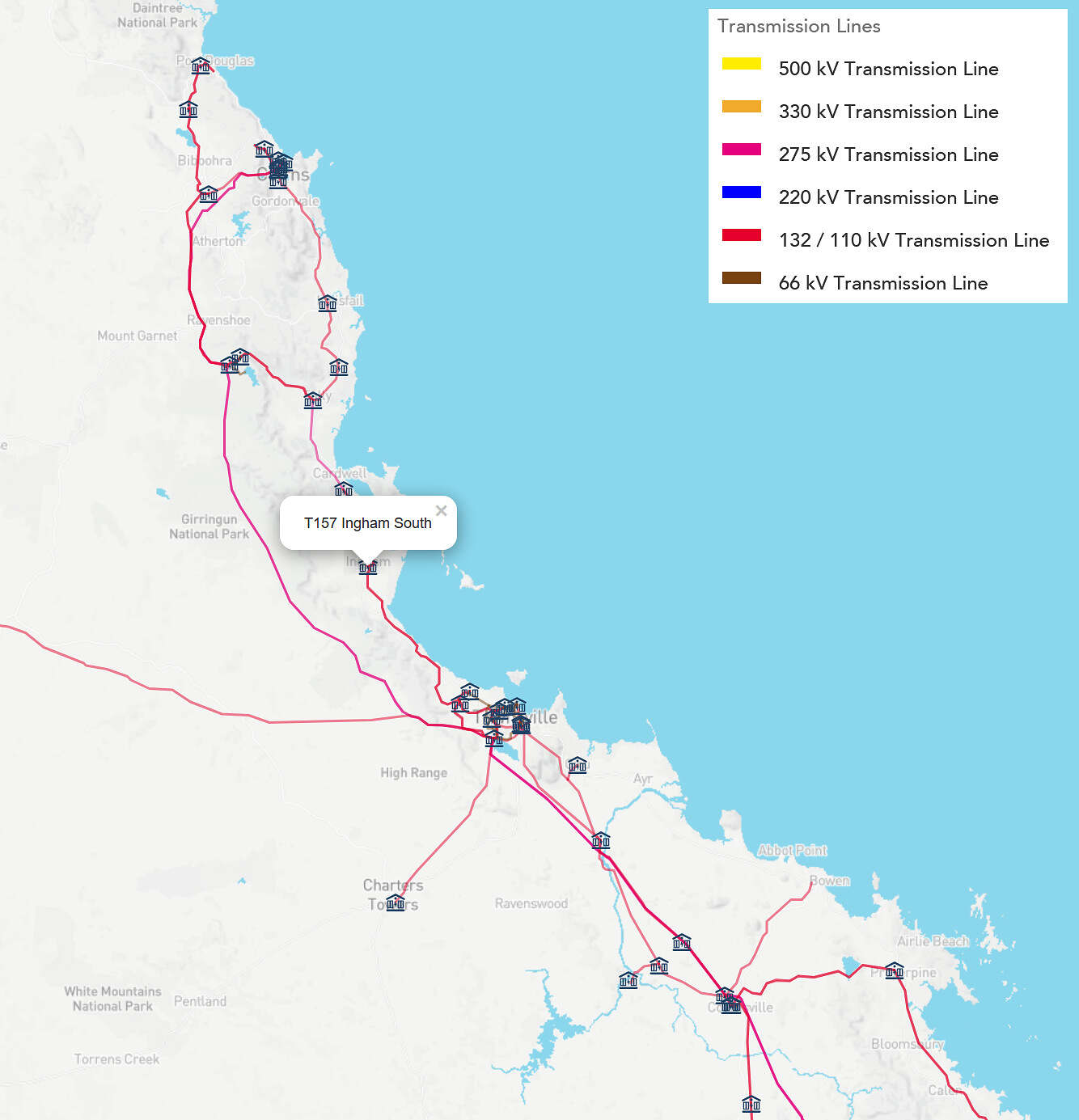
The location of Ingham substation, in reference to the North Queensland section of the transmission network.
Source: AEMO Map
From a quick glance at our constraint sets widget in ez2view, there does not currently appear to be any invoked constraints related to the substation outage at the time of writing.
As these events evolve over the next few days, we will attempt to update our readers with further developments regarding the weather system and other impacts on the electricity system.


Be the first to comment on "North Queensland braces for more heavy rainfall, as 9,000+ customers experiencing power outages overnight due to flooding"